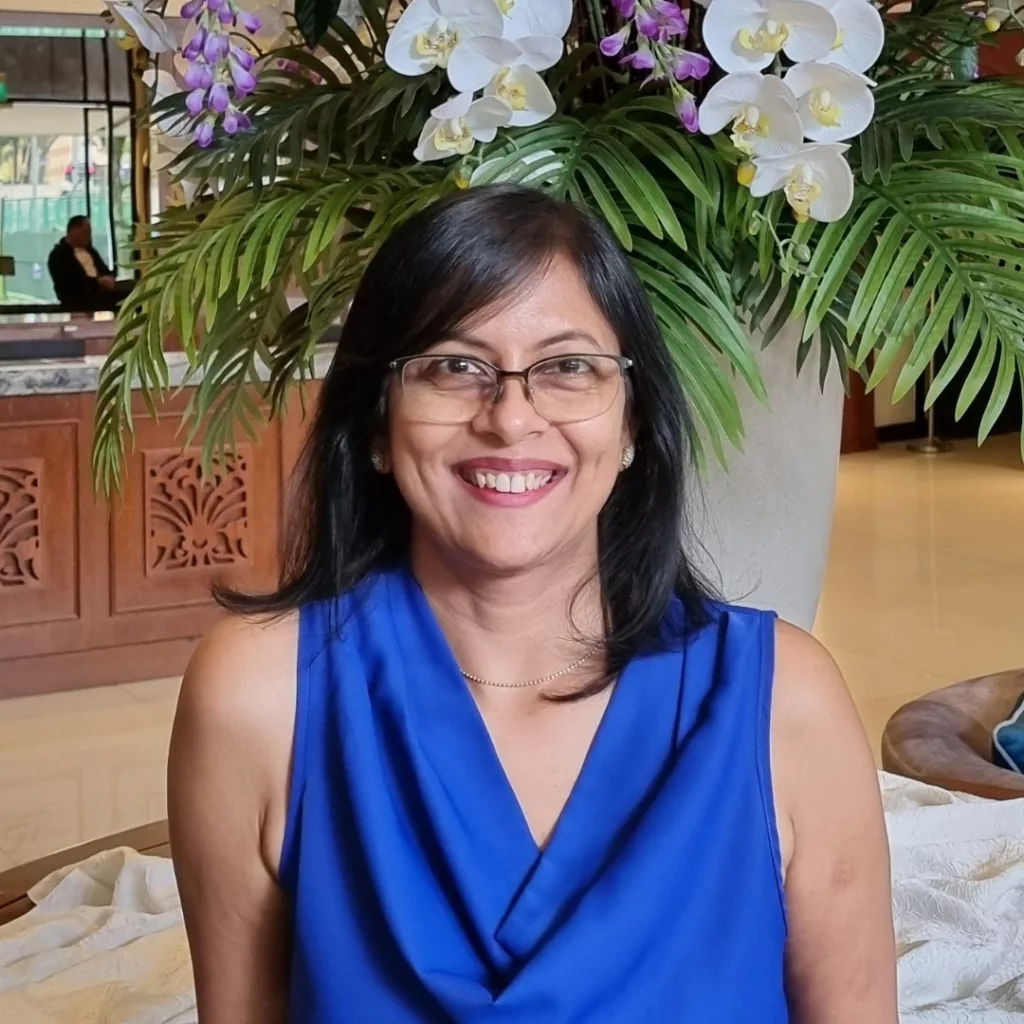
It takes a truly powerful punch to the glass ceiling to become only the second woman leader in the history of an organisation that is nearly a century old, even older than the country where it is based. To have this happen in the country’s Diamond Jubilee year makes it a double celebration.
Rotary Club of Singapore, established in June 1930, recently elected Indian-origin entrepreneur Sonali Sinha as its president, an appointment as remarkable as it gets, since Sonali, a Rotarian for about a decade now, arrived in Singapore less than six years ago to join her husband and son.
Perlita Tiro was the first woman to lead Rotary Club of Singapore, with the tenure of 2014-15. Each Rotary Club president has a one-year term, and there have been a few Indian-origin names in the list for the Singapore chapter.
Sonali Sinha, earlier a member of Rotary Club of Mumbai Queens Necklace, now makes history of sorts as the first Indian-origin woman president of this traditionally male-dominated organisation in Singapore. She was a Board member of the Rotary clubs in Mumbai and Singapore, before rising to this pinnacle.
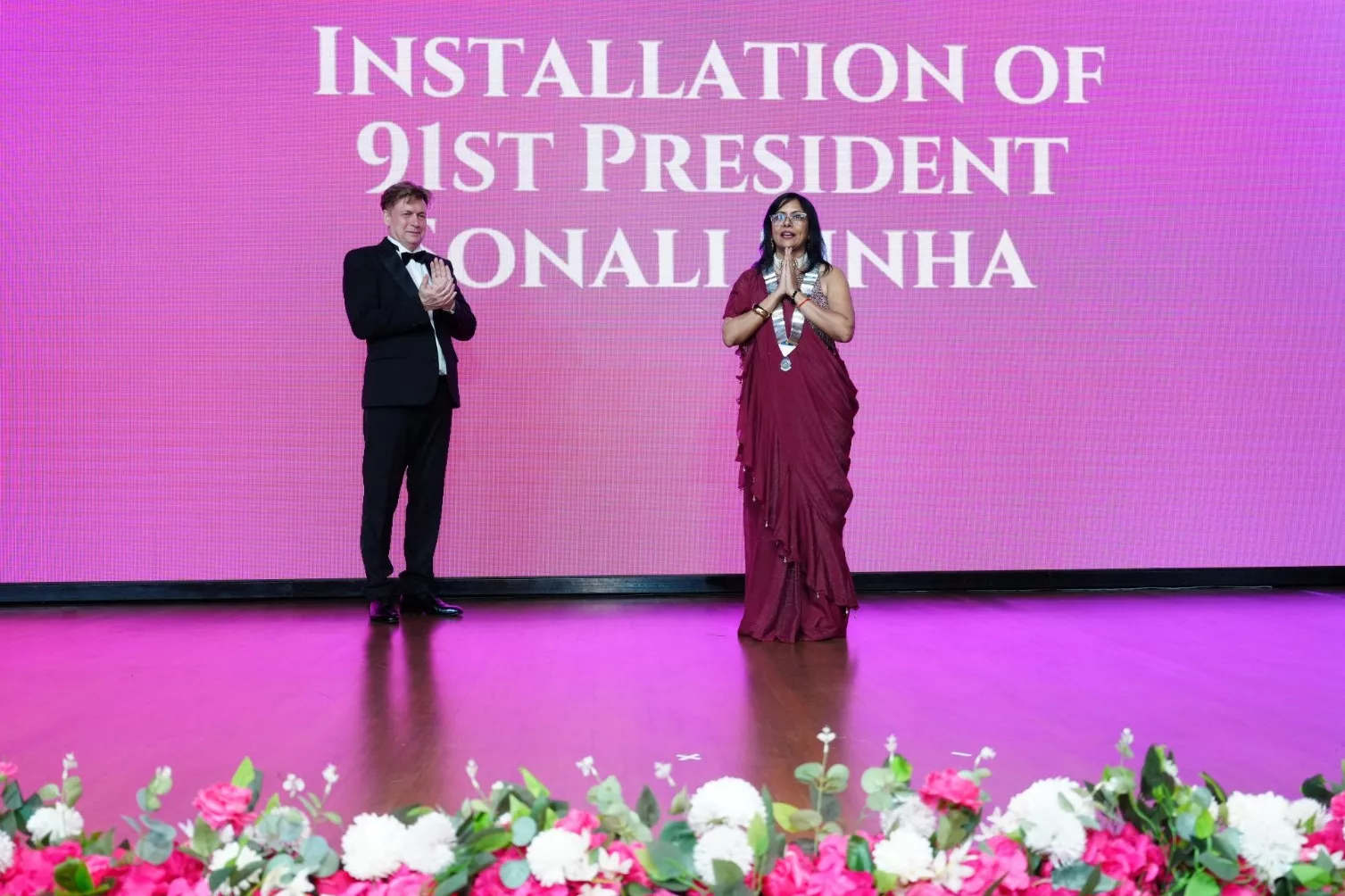
From profit to purpose
Sonali’s career path has taken her from the world of finance — with stints in equity research, mergers & acquisitions (M&A), and corporate advisory — to community development and leadership coaching. The throughline? A deep commitment to making lives better. “I always say yes to opportunities,” she shares, when asked how she has made such varied and meaningful transitions.
Speaking to Sanchita Guha, Consulting Editor, Connected to India, she outlines her immediate goals as the President of Rotary Club of Singapore: “One is member care and the other is creating impact.”
I strongly feel that when you have a vibrant community of people who are excited to do good work together, then you can do very meaningful projects — and one of the key projects that we’re doing this year will be a dialysis centre that we are setting up in Singapore.
Sonali Sinha, President of Rotary Club of Singapore
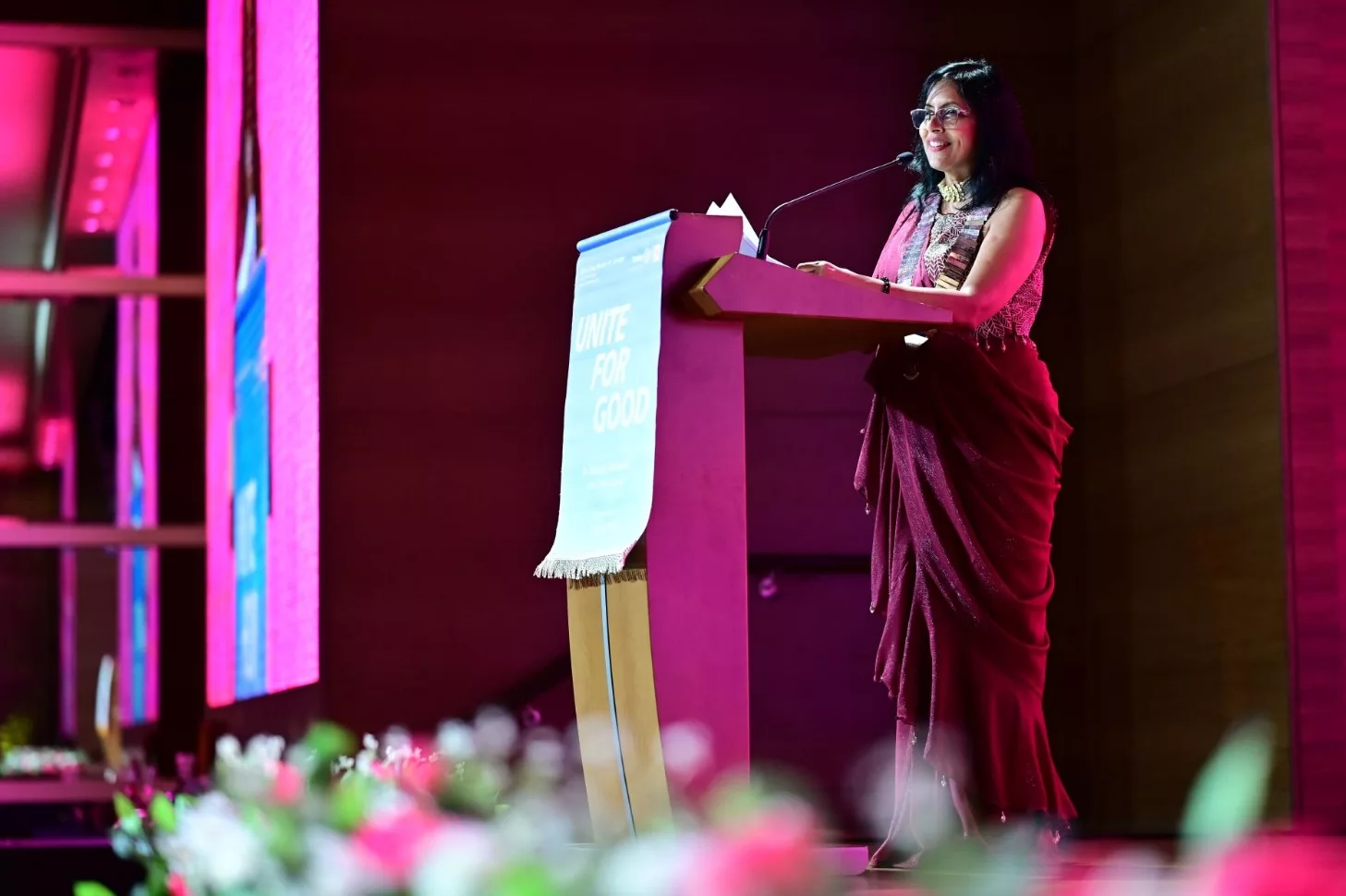
Generally seen as a nation with a healthy lifestyle, Singapore faces a growing and often overlooked threat: chronic kidney disease. Rotary Club of Singapore has identified this as an impact area, targeting not only disease management by making dialysis accessible to more people, but also by stopping disease progression in its tracks through preventive screening.
“Singapore has been in the top three for several years for the incidence of chronic kidney disease and, every month, so many new people are being added to the list of people who need dialysis,” says Sonali. Having seen her own father go through dialysis, the issue is close to Sonali’s heart. “So, we have partnered with Willing Hearts, a soup kitchen that our [Rotary] club actually supported, setting up their entire kitchen during COVID times to build a capacity for 20,000 meals a day. They currently distribute 10,000 cooked meals a day to the elderly living alone and to various other beneficiaries.”
Willing Hearts has partnered with a new organisation called Renal Health Services, and they in turn have joined hands with Rotary Club of Singapore to set up a 20-chair dialysis centre.
“This is one of our largest projects in recent times. This is an SGD 600,000 investment, because we are providing the entire medical equipment for the dialysis centre,” says Sonali.
In a happy development, the stakeholders were able to get several anchor donors who gave SGD 20,000 each, helping the project reach its funding target. Grants also came from the Singapore Government and from the Rotary Foundation.
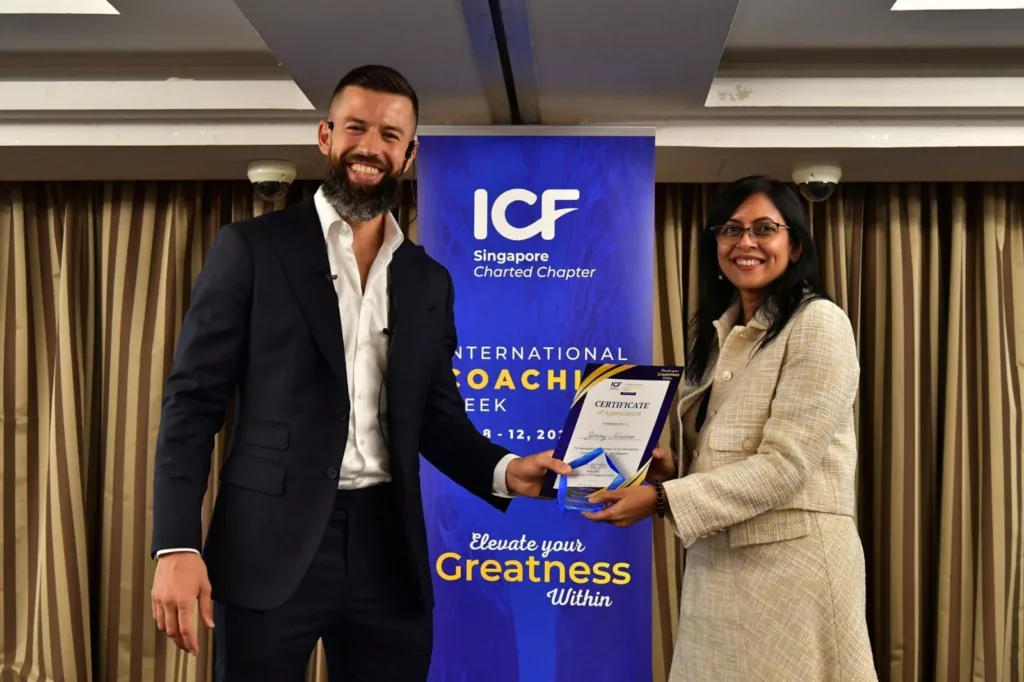
Always a desire to impact lives positively
Sonali’s early life and career — culminating at this point where she leads a 95-year-old diversity-rich organisation with about 170 members of 28 nationalities — have given her a sharp blend of business acumen, leadership qualities, and an instinctive need to support the community.
A Rotary member since 2016, she saw a lot of life — what one might call “the real India” — as her father worked in the public sector with a transferable job.
“While growing up, I moved around. My dad worked in the cement industry. When he joined the public sector, we lived in small villages with nothing but one or two cement factories in a township,” recalls Sonali. She later lived in cities like Delhi and Mumbai, giving her a deep appreciation of the full spectrum of environments people call home.
After earning an Economics (Honours) degree from Lady Shri Ram College, Delhi University, Sonali did her MBA from XLRI Jamshedpur, and then moved to Mumbai to join SBI Capital Markets, the investment banking subsidiary of the State Bank of India, the largest public sector bank in the country.
She started in equity research and, after a couple of years, moved to M&A and advisory. But all the while, “I think I was always talking about how at some point in time, I was going to work with a non-profit”, she says.
It was those growing-up days in the villages that instilled in her the desire to work in the field of social development, but it would take several more years for Sonali to be fully immersed in this calling.
As life prepares one for the next turning on the road, the years of investment banking equipped Sonali for the charitable fundraising she does now.
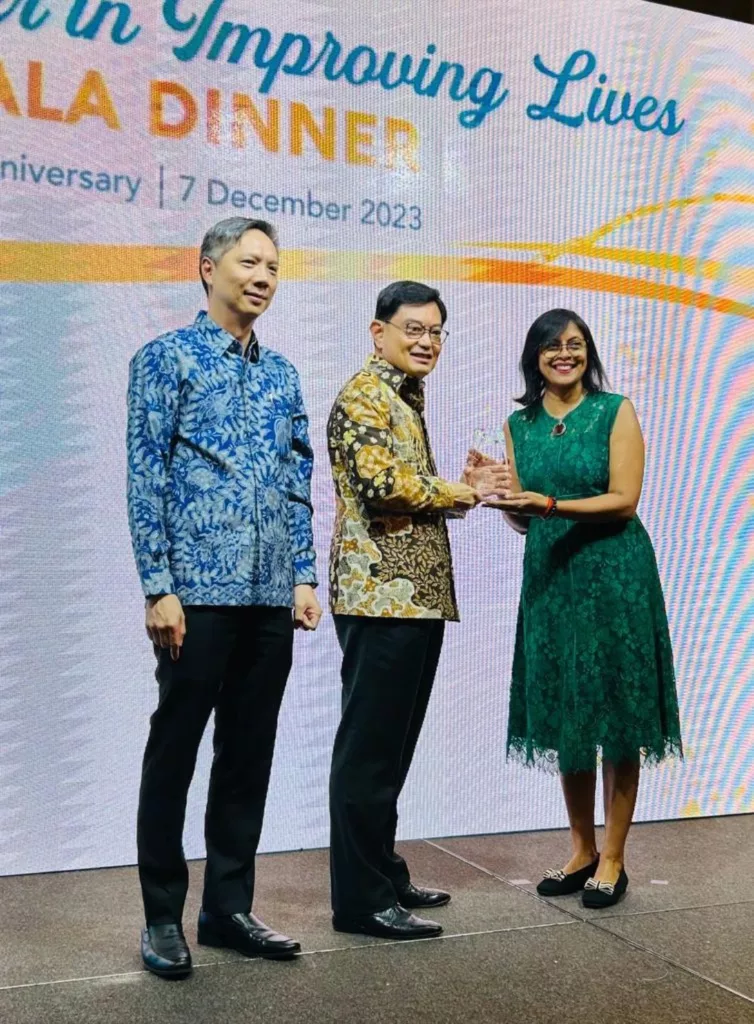
She says, “Maybe because of what I saw across [India], there was a desire that my work should be able to impact lives positively. So, even while I was in investment banking — helping organisations raise money — my husband was very inspired by my desire to work in the non-profit [sector], and he had actually worked with a non-profit before I did.”
Sonali’s husband Vineet had joined an organisation called the Ummeed Child Development Centre, started by Dr Vibha Krishnamurthy, known as “the first developmental paediatrician in India”, and she participated in the centre’s activities by helping them with fundraising.
Also, she helped an orphanage near her place of residence to raise funds for a water tank. “So, that desire to impact lives was there, and I was actively doing that.”
Yet, she had not made a complete switch, until two factors nudged Sonali from the corporate sector to the non-profit sphere and finally to the entrepreneurial space.
Professionally, her drive to reach the top in her firm hit a barrier, and it served as a wake-up call. Sonali recalls, “After 16 years in investment banking, I was very clear that I wanted to make partner. And the year I hoped it would happen, it didn’t. That moment shook me out of my focused mindset of ‘I have to get to the top’ and made me reflect. I thought, ‘Okay, this isn’t everything in life; I’ve always talked about working in the non-profit space.’”
Personally, too, it was a turning point. Sonali had reached the milestone age of 40, and with it came a greater sense of urgency. “I said, if I want to make a change, this is the time,” she shares. “So I left investment banking. I had been at my last firm for about a year, and I decided it was time to join a non-profit.”
Reluctant to let her go, the managing director offered a compromise: “Spend 75 per cent of your time in banking and finance, and 25 per cent in our corporate social responsibility (CSR) initiatives.”
Sonali took three months off to contemplate this before deciding to make a clean break. “I went back and said, ‘If I want to do something, I want to do it wholeheartedly. If I try to divide my time between the two, I’ll always feel I’m not doing enough on either side — knowing how I am. So I’m leaving.’”
Just about then, she was introduced to the founder of Dignity Foundation and was offered her first full-time non-profit role. This organisation was “a sort of pioneer in the elder care space”, which was unfamiliar ground for Sonali, but she said ‘yes’ anyway.
“I joined as the COO and became the CEO later. It was such a big culture change — from investment banking, where you have the sharpest minds and cut-throat competition, to people who are so happy where they are and happy with whatever they have. You live in a bubble in investment banking, but this was so different.”
Leading an elder care NGO brought both challenges and opportunities, as Sonali realised the scale of the problems that non-profits try to tackle with very limited resources. “I learned that you can do a lot with very little, provided you are very scrappy about it, and make the most of what you have, and use your networks — it taught me a lot,” she recalls.
As it often happens with NGOs, it was necessary to pay the 70+ staff members before she could pay herself. That made her work “very entrepreneurial” and also taught her “to be very selective about what you focus your energies on”.
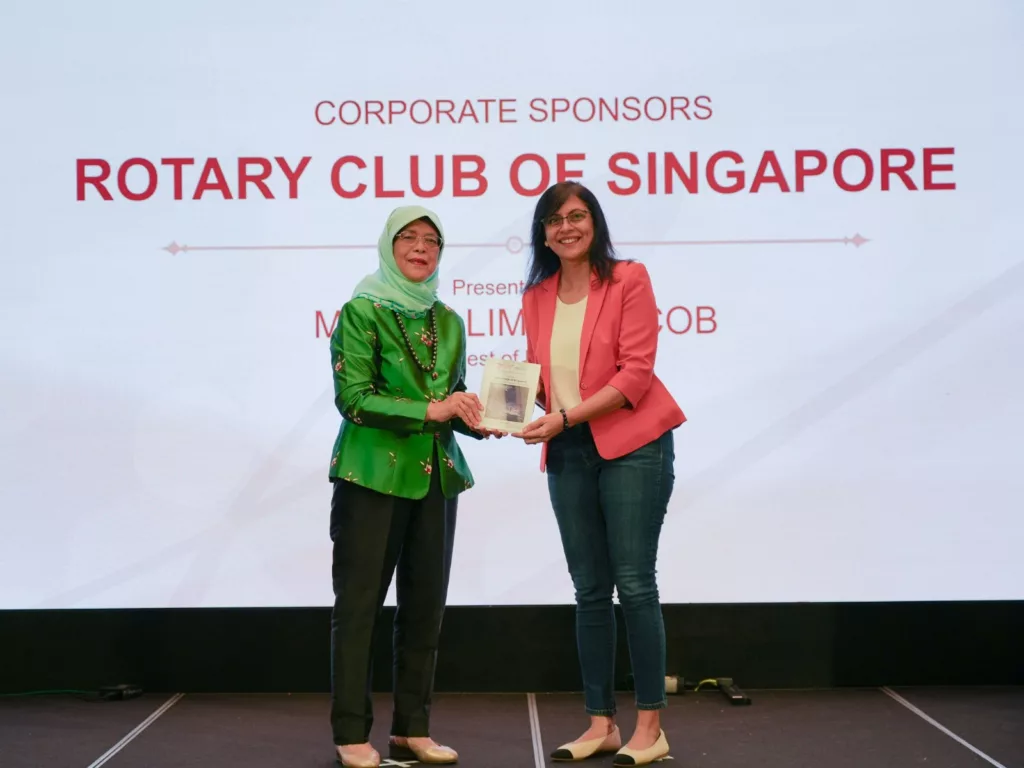
Going deeper into what motivates people, Sonali decided to explore the one thing that always intrigued and engrossed her: human psychology. After three years at the helm of the elder care non-profit, she left to set up her own leadership training programme.
A specific trigger for this decision was a report she had read that said “80 per cent of [Indian] engineers are not employable”. What was missing in them? She was determined to set things right through training.
Once again, it was a plunge into the deep end, and Sonali’s research experience bolstered her new venture. “I had no background in [training] at all, but I took three months to really study, and I designed a 40-hour training programme, which took people from self-awareness and self-management to social awareness, interpersonal skills, and leadership skills. The third module was all about creative and critical thinking, and the fourth module was about understanding business and marketing yourself,” she says. “The object of my whole programme was to help young people find their footing and approach their work with a lot more confidence.”
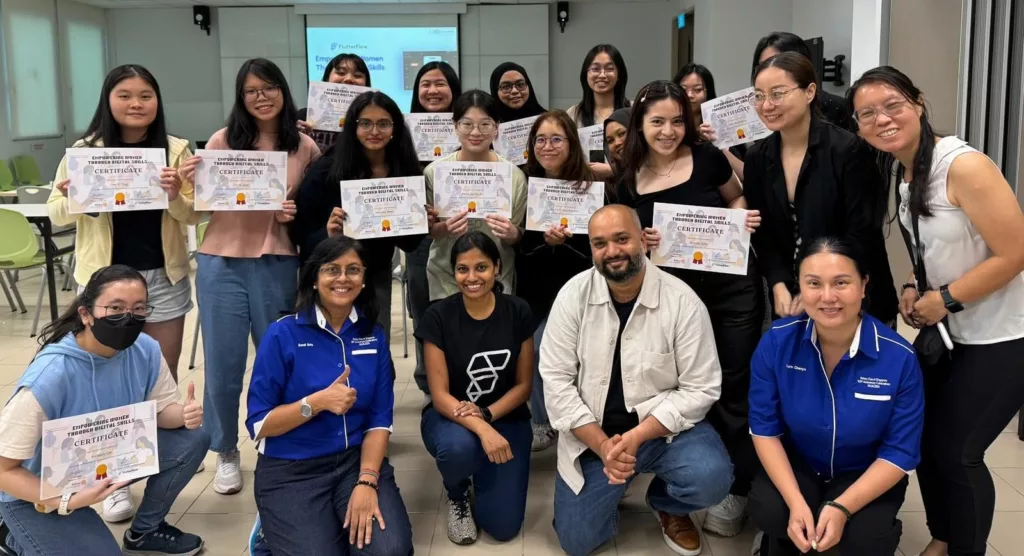
Sonali’s training programme “started out with young people but then a lot of working professionals also started signing up”. This was a revelation that “so many people are stuck at different levels in their career, [and] have reached a point where they just don’t know how to move forward”.
Individual training and corporate training continued side by side, and there was “amazing feedback” from many of the thousands of people that her training company worked with.
Looking back at the positive impact she made with her training, Sonali says, “I think the first module of self-awareness was the most impactful, because when people realise who they are, what their values are, what their motivations are, what they want to do with their life, finding agency and realising that they can be themselves, they don’t have to fit into any box that anyone has tried to put them in.”
Just as Sonali had quit her first line of work to find a new path, so did many of the people she trained. “A lot of them said, ‘I feel like a weight has been lifted off my shoulder.’ They began to see themselves differently, make empowered choices, and live with greater intention,” she shares.
What makes one the ideal Rotarian?
Finding oneself usually also means finding one’s true purpose in life, and the most steadfast purpose goes beyond one’s own wellbeing.
Rotary started as a support network of professionals, set up in February 1905 by Chicago advocate Paul Harris.
“Then they realised that you cannot keep a network together without any core purpose,” says Sonali. “So that’s when this concept of ‘let’s solve problems in the communities around us’ came in. And we have a motto, ‘Service above self’, so that unites all of us. We understand that we’re here to serve the community and to put their needs before our own needs.”
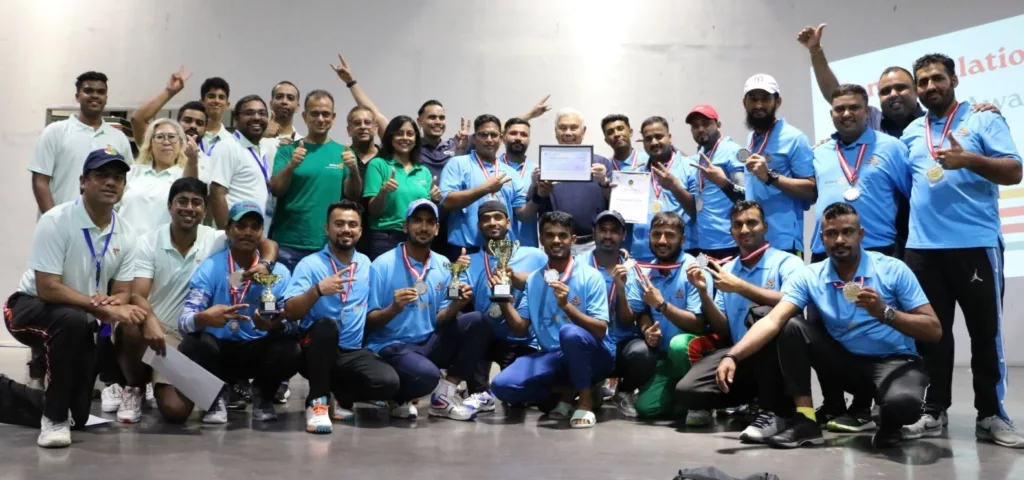
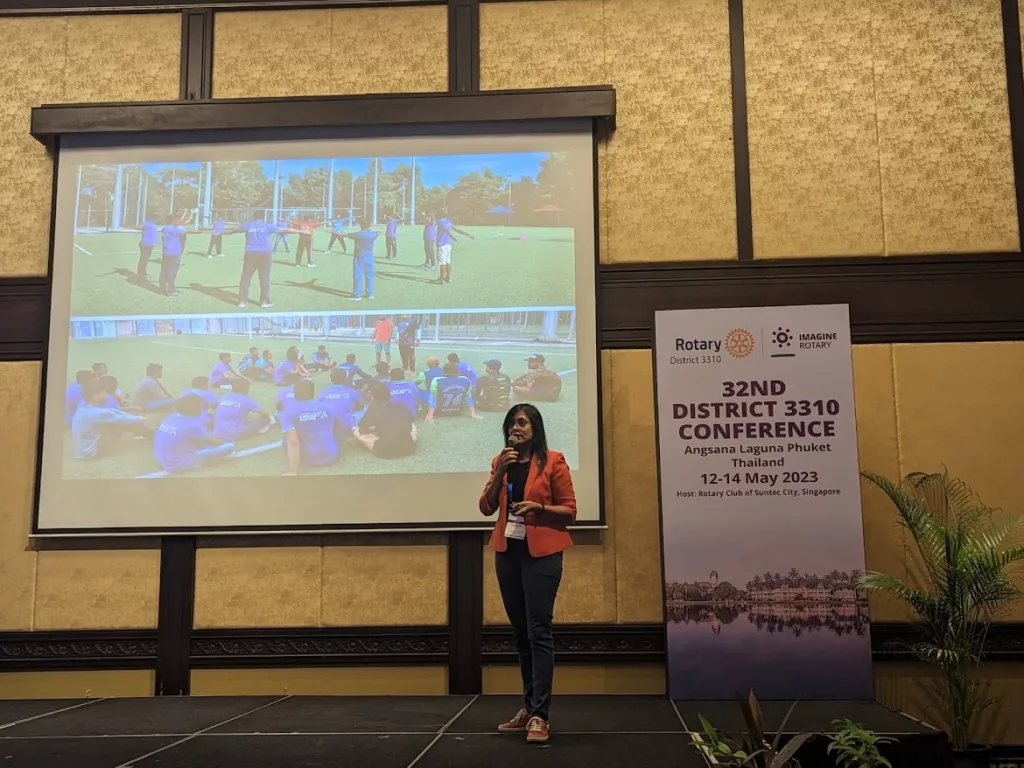
The ideal Rotarian has certain traits. Outlining them, she says, “Anybody who has a social inclination; anybody who is bothered when they see either poverty or disease; anyone who feels, ‘I wish things were different.’”
Rotary looks at the UN Sustainable Development Goals, and “there are seven areas of focus”, so anyone who wishes to make a difference in those areas in a committed manner can become a part of the Rotary movement. The world-renowned Rotary legacy, with its platform and resources, is an outstanding enabler.
“As an individual when I go to an organisation, I can only approach them as a volunteer; but as Rotary, when we approach organisations, they know that we have so many resources behind us and we have this legacy. We speak to governments and we speak to heads of organisations, and we are able to influence their programme designs,” says Sonali. “When we induct a member, we say, ‘The world will know Rotary from your conduct as a Rotarian.’ So, I think it’s a very good way of instilling certain values.”
Besides the greater goals of Rotary as an organisation, Sonali wants to — as the new president — encourage still more diversity and inspire more women to reach for leadership. The glass ceiling for women, she says, “is very real”.
“[The glass ceiling exists] not just in terms of promotions or leadership roles, [but also] shows up in how people are perceived, how their contributions are valued, how much credit they get for what they bring to the table, and also in the invisible expectations placed on them to prove themselves more than others. I have experienced it myself, and it’s very real,” says Sonali. Such hurdles only make her rise to presidency that much more commendable.


